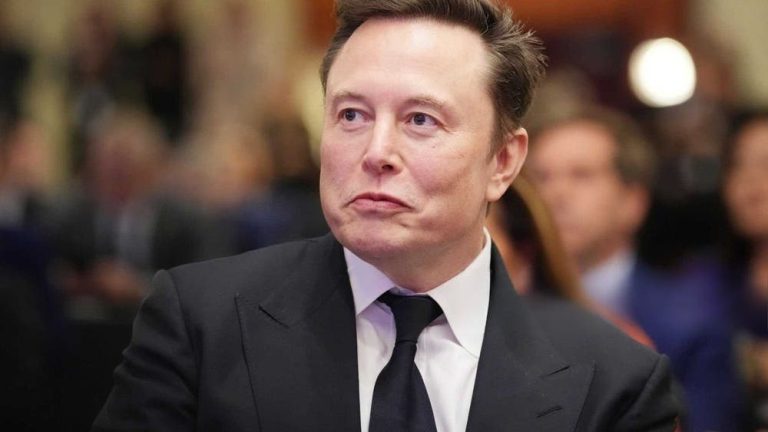Nigel Farage’s smile as he entered the Halton rugby league stadium just before 6am on Friday was a clear sign that Britain was waking up to a transformed political landscape. “This is a very, very big moment indeed,” the Reform UK leader beamed.
A few minutes later Farage’s smile at a knife-edge count for the Runcorn & Helsby by-election on Merseyside was even broader as it was confirmed that Reform had beaten Labour in its 16th safest parliamentary seat. “Phenomenal,” Farage said.
By the time Britons were having their first cup of tea on Friday, Farage’s upstart party had not only won in Runcorn but had won more local council seats than every other party put together. The political repercussions will be profound.
For Labour, humbled in its heartlands, the results will confirm the view in Sir Keir Starmer’s circles that the party needs to tack to the right, adopting “Blue Labour” policies in areas such as migration and on social issues to halt Farage’s rise.
But the results are equally ominous, perhaps more so, for Kemi Badenoch’s Conservative party, which risks being usurped by Farage as the principal opposition to Starmer across England and is on course for a calamitous set of local results.
In the race for mayor of the West of England — the only true five-party contest in these elections — the Tories were relegated to fourth place, behind Labour, Reform and the Greens.
Badenoch, too, is under pressure to tack further towards Farage in an attempt to stop the fracture on the right becoming permanent. But as she does so, she leaves her left flank exposed to the moderate, pro-European Liberal Democrats.
Although the early headlines were dominated by Reform, Badenoch faces an agonising Friday as council results from the English shires start to come in — mainly after lunchtime — which are expected to confirm her party is in retreat across the land.
In rural counties such as Buckinghamshire, Devon and Oxfordshire, the Liberal Democrats are expected to make big gains, making further inroads in prosperous seats where traditional Tory voters recoil from Badenoch’s overtures to Reform-minded voters.
“We hope by the end of the day to show we are replacing the Conservative party as the party of middle England,” said Lib Dem peer Baroness Olly Grender. Tory shadow cabinet minister Helen Whately said simply the party was on course for “a bit of a battering”.
But in the early hours of Friday morning, it was Farage, the veteran Brexit campaigner, who was calling the shots in British politics, claiming that his brand of populism was capable of victories against both Labour and Conservatives.
Runcorn may have been one of the narrowest by-election wins in British history, but it revealed a massive 17 per cent swing from Labour to Reform UK in what had been one of the party’s safest seats. Farage’s party also came close to beating Labour in mayoral races in the solid red heartlands of Doncaster and North Tyneside.
“It sends a message across much of the country that we are now the opposition to the Labour party in government,” Farage said.
His party now has five MPs, but Farage’s push for power means he will have to overcome the vagaries of Britain’s first-past-the-post voting system. At the 2024 election, Reform won 14 per cent of the vote but only a handful of seats because its support was “inefficiently” spread across the country.
His party will now come under far greater scrutiny, as it starts having to run things. Farage admitted that if Reform won control of Staffordshire County Council on Friday, media attention on town hall politics would never have been so acute. “I completely get that,” he said.
Morgan McSweeney, Starmer’s chief of staff, will pore over the results on Friday and is likely to conclude that he is right to pursue a “Blue Labour” strategy to address the populist threat — a policy which is already starting to be deployed.
In recent months, Starmer has cut the overseas aid budget, retreated from positions on trans issues and sounded more “patriotic tones”, including hosting the first St George’s Day reception in Downing Street to mark England’s patron saint.
Labour’s Ros Jones — who held on to her role as mayor of Doncaster by 698 votes — said Starmer needed to start listening to voters, arguing that on issues such as cutting winter fuel payments, cutting welfare payments and raising employers’ national insurance he had not been.
Jones said the election results showed the Labour government needed to be “listening to the man, woman and businesses on the street”. She added “The people of Doncaster know how hard life can be.”
McSweeney’s problem is that the Labour government has already embarked on a course, notably with welfare cuts that have yet to be delivered, which could exacerbate the problems identified by Jones.
With a parlous fiscal position, the risk for Starmer is that he will have to keep cutting spending or raising taxes, leaving him politically exposed to Farage’s claims that Labour is letting down working voters. Whitehall departments are braced for a painful spending review next month.
Reform’s victories will spark divisions in Labour about how to respond. One mainstream minister cautioned Labour against tacking to the right, telling the FT: “Our job is to take our communities towards a brighter future, not try to build a better yesterday.”
But while the early Friday headlines focused on Reform’s threat to Labour, in the short-term Starmer could be helped electorally if Farage continues to split the right. Scores of Labour MPs owe their place in parliament at the 2024 general election to the fact that Reform and the Conservatives were vying to be the main challenger.
Badenoch’s worry will be that Reform, at least on the basis of these elections, is starting to look clearly like the main challenger. In the Greater Lincolnshire mayoral race, taking place in what was once a Tory heartland, Reform’s Andrea Jenkyns, a former Tory MP, secured an easy victory.
Meanwhile, the Conservatives were defending around two-thirds of the roughly 1,600 council seats up for grabs in England in these elections, leaving them with a long way to fall. By early Friday they were losing about half of the seats they were defending as early results came in.
With Reform making big strides in the north and east and the Lib Dems poised for big advances in the south and west, Badenoch faces an agonising 12 hours ahead. For Farage, the party is only just starting.







